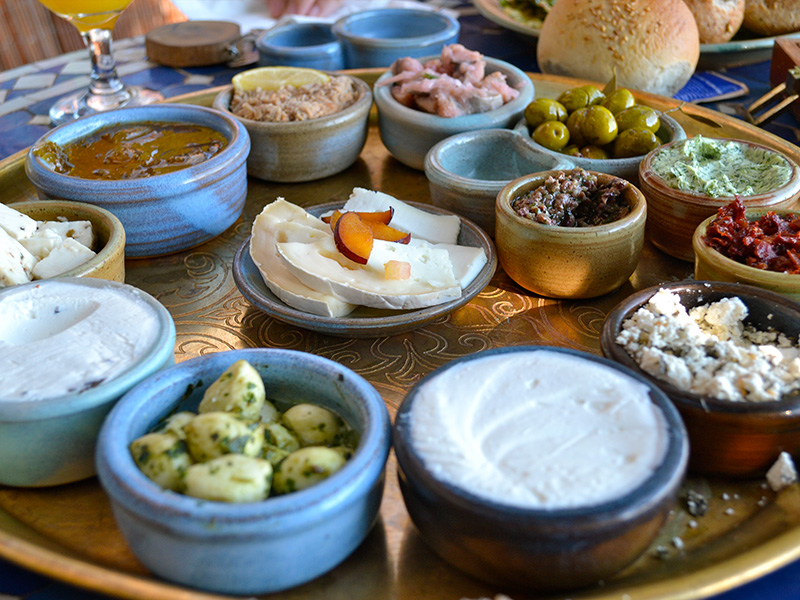Israel has the highest percentage of vegans per capita. Its wineries in the Golan Heights, which produce millions of bottles a year, frequently rank among the best in the world. And the food scene in Tel Aviv-Jaffa is thriving: Condé Nast Traveler magazine recently named it one of the planet’s five best culinary cities.
As filmmaker Roger Sherman explores in In Search of Israeli Cuisine, there are many misconceptions about the quantity of fine dining options, as well as the quality of the street food, in Israel.
“You can sample every country (with citizens) that have either come to Israel, or never left,” Sherman says. “There’s so much there.”
The dazzling diversity of food options will be on display when the documentary opens for a week at the Ted Rogers Hot Docs Cinema in Toronto, beginning June 16.

A major reason for this culinary renaissance is the blending of different styles and techniques of cooking. With Israel being the home to immigrants from Russia, Morocco, Turkey, Greece and other countries with a rich history of food, there are opportunities for chefs to make inventive and idiosyncratic dishes.
To keep audiences enthralled, Sherman found a helpful guide, award-winning Philadelphia chef Michael Solomonov.
READ: PALEO-INSPIRED RECIPES FOR DIABETES
Even with a notable expert on the local cuisine hosting the journey, Sherman says Solomonov hadn’t been to many of the places featured in the doc.
“We had a spreadsheet a mile long,” he says, referring to the list of restaurants the crew hoped to visit. “We have an hour-and-a-half of fully cut scenes that are not in the film.”
One common theme in the doc, which informs the title, is figuring out the difference between Israeli cuisine and traditional Jewish meals.
The film shows that it took many decades after Israel’s establishment to cultivate its own, unique cuisine. Originally, many new arrivals cooked dishes originating from the countries they came from.
READ: DON’T SMASH YOUR COMPUTER (YET). ANALOG SEDUCES ALL BUT BABY BOOMERS
Today, there exists a union of different cooking traditions informing Israel’s most savoured dishes. At the same time, chefs are blending these new flavours with traditional “mother’s cooking.”
But some of the people interviewed for the film disagree with its premise, explaining that there is no such thing as Israeli cuisine. A couple of journalists note that the country is still too young, and its food options stem from too many regions, to create a proper national flavour.
There are also misconceptions about the kinds of people who live in Israel, Sherman says. Many Israelis are neither religious, nor observant of kosher dietary laws. (To highlight this point, In Search of Israeli Cuisine has many shots of Solomonov and local chefs slurping down seafood.)
One creative decision of Sherman’s was not to go into the West Bank to scope out the culinary scene there, saying that the story would “get completely bogged down” by political content.
Regardless, he interviews Palestinian chefs working in Israel, who expose a pertinent political element to Israel’s culinary renaissance.
Lebanese-Palestinian chef Kamel Hashlamon says that there is tension when Israeli chefs appropriate Palestinian dishes.
Others view the sharing of these recipes as a potential road map to peace. In the doc, Israeli baker Erez Komarovsky says that food is collaborative and creative, and therefore “not political.”
Sherman tells The CJN that he tried to ensure that In Search of Israeli Cuisine didn’t become a feature-length promotional video.
“I wanted it to be about the Israeli people, but told through food,” he says.
Accordingly, Sherman has one piece of advice for audiences before they purchase a ticket: “Eat first.”
